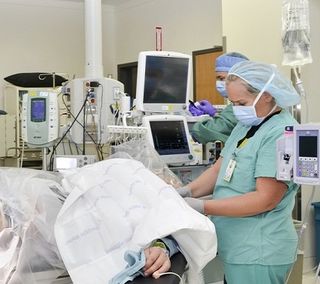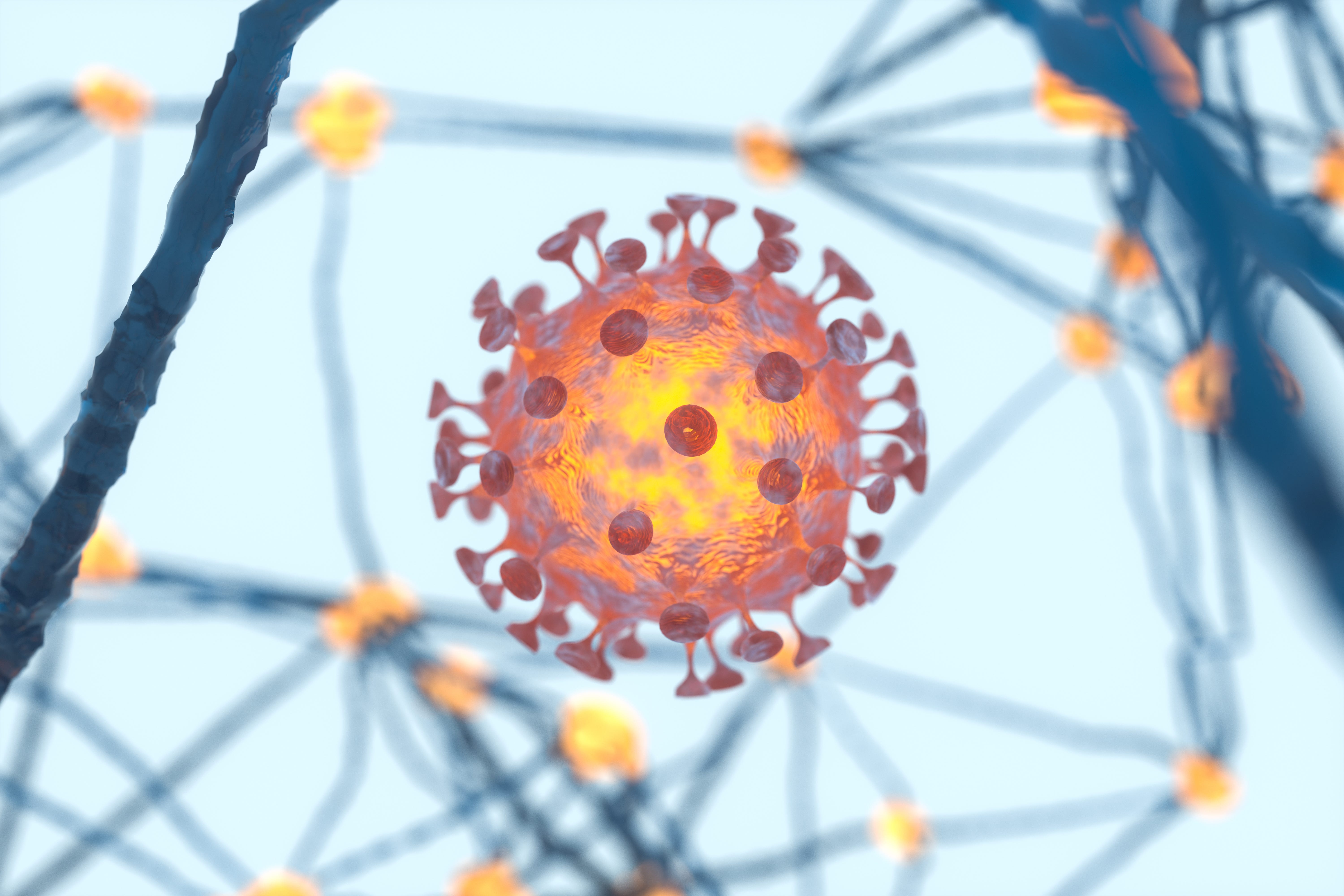More Inexplicably Odd COVID Symptoms Emerging
"Someone said she had experienced exactly this, another said, 'I have a patient that is experiencing that [strange tingling, burning sensation on neck,shoulder, arm, torso]. She couldn't quite predict where she was going to be feeling it."
"It's not dangerous in the sense that people are going to necessarily be falling over [or experience problems breathing]. But it's a frightening sensation for somebody who has never had any kind of neurological disease before."
"The bigger concern here is, if there has been some kind of virus entry into the brain, does it have long lasting effects? We just don't know."
"It's really hard to make firm conclusions based on one or two autopsies."
Serena Spudich, chief of neurological infections, global neurology, Yale University School of Medicine
"There is growing evidence of neurological complications and disease in patients with COVID-19."
"Neurons were found to have viral particles packed in dilated vesicles [and once the virus enters neuronal tissue] it could begin a cycle of viral building [inflicting further neuron damages]."
New paper in online publication JAMA Neurology
 |
Some people arrived complaining of severe headaches. At other hospitals colleagues reported strokes and seizures in the COVID-19 patients. One hospital in Detroit reported a case of a 58-year-old airline employee whose CT and MRI scans indicated abnormal brain lesions, along with a damaged thalamus. The patient was unable to respond to any queries, able only to offer her name, her mental status in complete collapse. Now, the question challenging the medical community is: Can the SARS-CoV-2 virus impact the brain?
There is confusion over whether the virus manages to invade the central nervous system and brain, or alternately that the symptoms are the result of inflammation in the brain of an immune response run amok. An article published in JAMA Neurology, other than that of Dr.Spudich's research team, suggests that the virus does actually gain entry to the brain. Loss of smell had been anecdotally linked to COVID-19 onset since doctors in Italy reported that a radiology worker suddenly lost her sense of smell on infection with the virus.
 |
| Source: U.S. Army photo by Patricia Deal |
It was revealed by an MRI scan that an inflammation in the gyrus rectus, front portion of the brain responsible for smelling, was present, as well as in the olfactory bulbs, the nerves that carry smell from the nose into the brain. Suggesting that "SARS-CoV-2 had entered the patient's nose and made its way to the nearest brain region from there". However, in two other patients who lost their sense of smell, no brain abnormalities were seen. People infected with the virus have frequently reported loss of taste and smell.
Concerns have arisen that COVID-19 may be "neurotropic"; toxic to the spinal cord and brain, possibly leading to lingering brain complications. "There's not a lot of inflammatory mediators floating around [the brain]", explained Dr. Spudich. However, when a pathogen, a virus or bacteria invade, the brain responds signalling to the immune system that an invader is present. At which point immune cells congregate in the brain, "and when you get a lot of immune cells into the brain, they release different chemicals and proteins that cause dysfunction".
There's the theory that some patients have received a higher virus load making it likelier that the virus may enter the brain, hazarded Dr.Spudich. "I think we have to be really careful here." [Much of what doctors are seeing neurologically, has occurred with people severely ill with COVID-19]. A confused presentation with altered mental states might result from low oxygen or delirium associated with intensive care.
 |
| Image: Jian Fan |
Labels: Neurological Effects, Research, SARS-CoV-2, Symptoms

<< Home